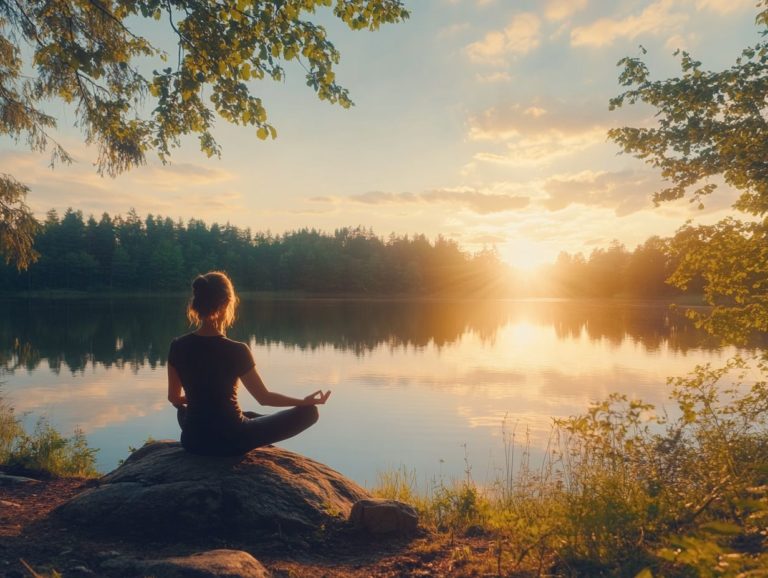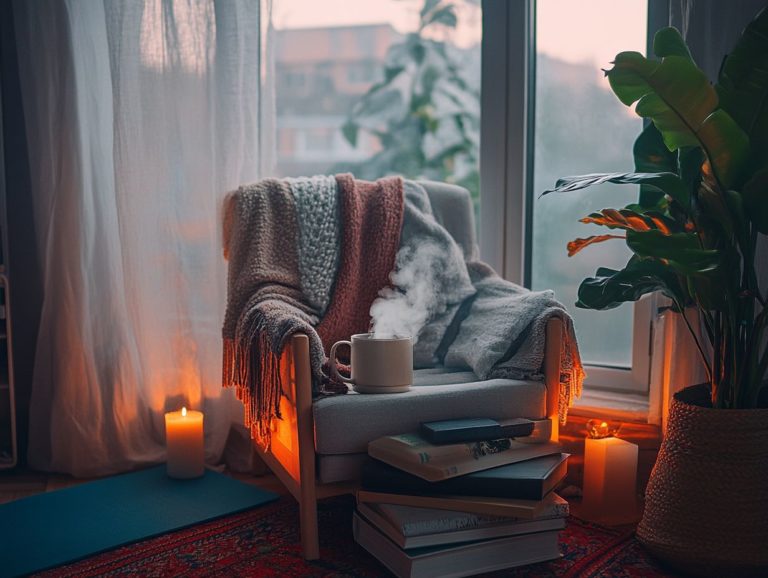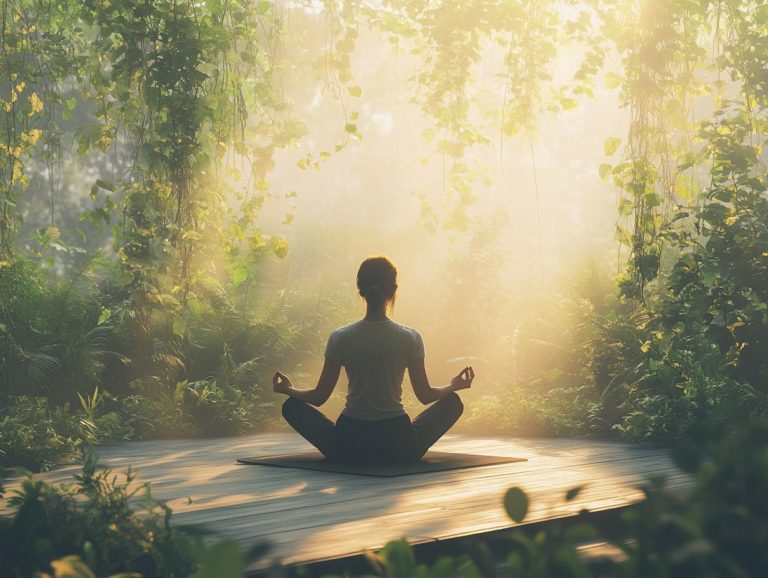Tips for Overcoming Relaxation Barriers
In today s fast-paced world, finding genuine relaxation can feel like chasing a mirage. You may face common obstacles that make unwinding a challenge, whether it s the stress from work, personal responsibilities, or the relentless demands of daily life.
This article delves into these barriers, guiding you through self-reflection to uncover your unique challenges. You ll discover effective strategies to overcome these hurdles, tips for seamlessly incorporating relaxation into your daily routine, and insights on when it might be time to seek professional help.
Continue reading to reclaim your peace of mind.
Contents
- Key Takeaways:
- Understanding Relaxation Barriers
- Identifying Your Personal Barriers
- Overcoming Relaxation Barriers
- Incorporating Relaxation into Daily Life
- Seeking Professional Help
- Frequently Asked Questions
- What are some common relaxation barriers?
- How can I overcome feeling guilty for taking time to relax?
- What can I do to quiet my mind and relax through mindfulness?
- How can I find time to relax and manage challenges when I have a busy schedule?
- What are some self-care activities and wellness practices that can help me relax?
- What can I do if I feel like I don’t have control over my relaxation or emotional well-being?
Key Takeaways:

- Identify the obstacles that may hinder your relaxation journey to overcome them effectively.
- Incorporate relaxation techniques into your daily routine to make it a habit and prioritize self-care.
- Seeking professional help is a valid option to overcome deep-rooted relaxation barriers and improve overall well-being.
Understanding Relaxation Barriers
Understanding relaxation barriers is crucial for anyone grappling with the intricate challenges posed by stress, anxiety, and depression, especially in the aftermath of the COVID-19 pandemic. Many individuals face intensified emotional and physical reactions during this time.
By identifying these barriers, you can implement effective coping strategies that improve your health and significantly transform how your body and mind respond to stress. Experts like David Shurtleff and Jonathan C. Smith underscore the importance of awareness in overcoming these obstacles to relaxation, giving you the power to navigate these challenges with greater efficacy.
Common Obstacles to Relaxation
Common obstacles to relaxation often present themselves as stressors that impede effective muscle relaxation and overall emotional well-being. These stressors are frequently worsened by financial challenges and chronic stress.
Recognizing these obstacles is essential for crafting practical relaxation techniques that can enhance your daily life and improve your mental health. For example, financial stress can create a persistent anxiety that makes it difficult to unwind, leaving your body tense and your mind racing.
Emotional barriers, such as fear of failure or feelings of unworthiness, further complicate your ability to engage in self-care practices. Chronic stress, often caused by busy lifestyles, restricts opportunities for mindfulness and makes it hard to find real moments of peace.
By confronting these challenges and exploring techniques like guided meditation a practice involving focused attention on thoughts and sensations and deep-breathing exercises, you can gradually learn to clear your mind and alleviate physical tension. Embrace this journey now to achieve a deeper sense of balance and relaxation!
Identifying Your Personal Barriers
Identifying your personal barriers to relaxation requires a thoughtful process of self-reflection and an honest assessment of the emotional challenges that may arise from anxiety or stress. Understanding better these barriers is essential for cultivating effective coping mechanisms, ultimately enhancing your overall well-being and enriching your quality of life.
Self-Reflection and Assessment

Self-reflection and assessment are invaluable techniques for enhancing your emotional awareness and identifying specific coping strategies to overcome relaxation barriers. By dedicating time to analyze your thoughts and feelings, you can better manage stress and anxiety.
Several self-reflection techniques, such as guided journaling, meditation, and mindfulness exercises, are essential tools in this journey. Guided journaling invites you to delve deeply into your emotions, promoting clarity and understanding. Meditation provides a mental sanctuary where you can observe your thoughts without judgment, fostering a profound sense of calm.
Meanwhile, mindfulness exercises encourage you to fully engage with the present moment, allowing for a richer connection to your emotional experiences. Together, these methods enhance your emotional awareness and arm you with effective coping strategies to navigate daily stressors, ultimately improving your overall well-being.
Don’t wait! Start your journey to relaxation today!
Overcoming Relaxation Barriers
Overcoming relaxation barriers demands effective strategies that prioritize mindfulness and emotional well-being. Techniques such as yoga and breathing exercises can be particularly beneficial.
By embracing these practices, you can create a nurturing environment that enhances your ability to relax and strengthens your coping mechanisms in the face of daily challenges.
Strategies and Techniques
Effective strategies and techniques for relaxation include breathing exercises, visualization, and progressive muscle relaxation. These practices can profoundly enhance your self-care and emotional health.
Incorporating these methods into your routine can improve your ability to manage stress while cultivating a sense of calm and control in your life. These relaxation techniques engage both your mind and body, helping to reduce anxiety levels and promote overall well-being.
For instance, controlled breathing lowers your heart rate and blood pressure, creating a physical response that mirrors feelings of tranquility. Visualization taps into the power of your imagination, allowing you to mentally transport yourself to peaceful settings, further alleviating emotional distress.
Progressive muscle relaxation involves systematically tensing and then relaxing different muscle groups, teaching you to recognize physical tension and how to release it. Together, these techniques form a holistic approach to achieving emotional balance and nurturing your self-care.
Incorporating Relaxation into Daily Life
Incorporating relaxation into your daily life is crucial for cultivating a routine that fosters mindfulness and wellness. By dedicating time to relaxation techniques such as exercise, meditation, or even simple breathing exercises, you can transform your everyday existence into a sanctuary of calm and resilience.
Creating a Relaxation Routine
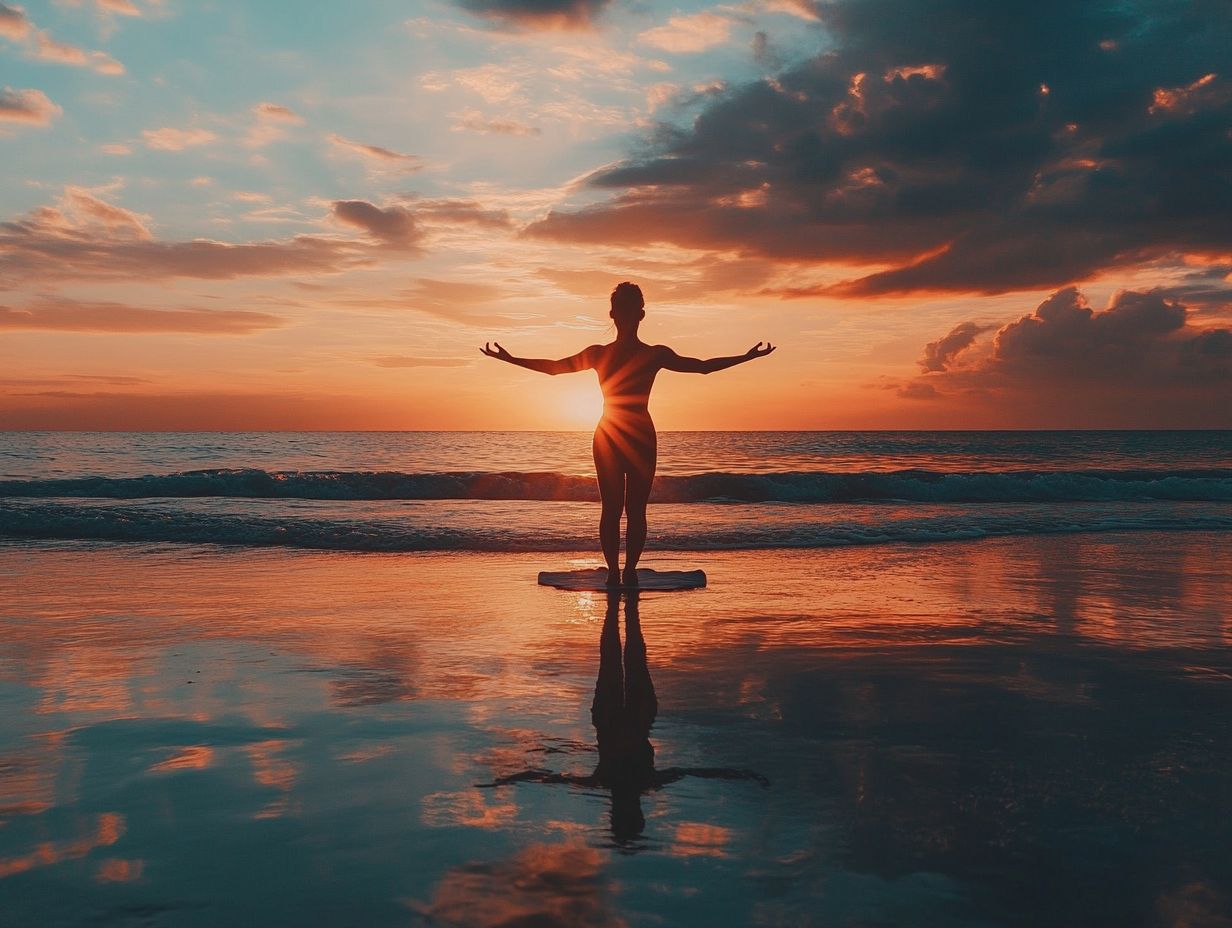
Creating a relaxation routine means weaving various mindfulness techniques into your daily life. This allows for a consistent approach to self-care and stress management.
Start by carving out a specific time each day just 10 to 15 minutes will do to focus on these practices. Think about incorporating deep breathing exercises, gentle yoga, or journaling during this dedicated time.
You can personalize your routine by experimenting with different techniques to discover what resonates most with you. This ensures it fits seamlessly into your schedule and commitments.
Try out guided meditation apps to make your relaxation journey even more enjoyable! Remember, the secret lies in consistency and finding joy along the way.
Seeking Professional Help
Seeking professional help can be a pivotal step for anyone facing challenges in achieving relaxation. Therapy or counseling offers invaluable support and personalized coping strategies designed to meet your unique needs.
By working with mental health professionals, you can delve into deeper emotional issues and acquire essential tools for effectively managing stress and anxiety.
Start your relaxation journey today your mind and body will thank you!
When to Consider Therapy or Counseling
Knowing when to consider therapy or counseling can be a pivotal moment in addressing feelings we struggle with and finding effective support for common barriers to relaxation. If you ever feel overwhelmed by stress, anxiety, or depression, seeking professional help can provide the guidance and coping mechanisms you need.
Recognizing certain signs is the first exciting step toward a happier you! Frequent mood swings, persistent feelings of sadness, or an inability to concentrate might suggest it s time to delve deeper into your emotions.
Withdrawing from social activities, changes in sleeping patterns, or battling excessive worry can significantly impact your daily life.
Therapy offers a safe space to express your feelings and equips you with valuable strategies to manage your mental health, which refers to our emotional and psychological well-being. This fosters resilience and enhances your emotional well-being.
Engaging with a professional can illuminate pathways toward healing and personal growth, leading you to a more fulfilling life. Contact a professional today to start your journey toward better emotional health!
Frequently Asked Questions
What are some common relaxation barriers?
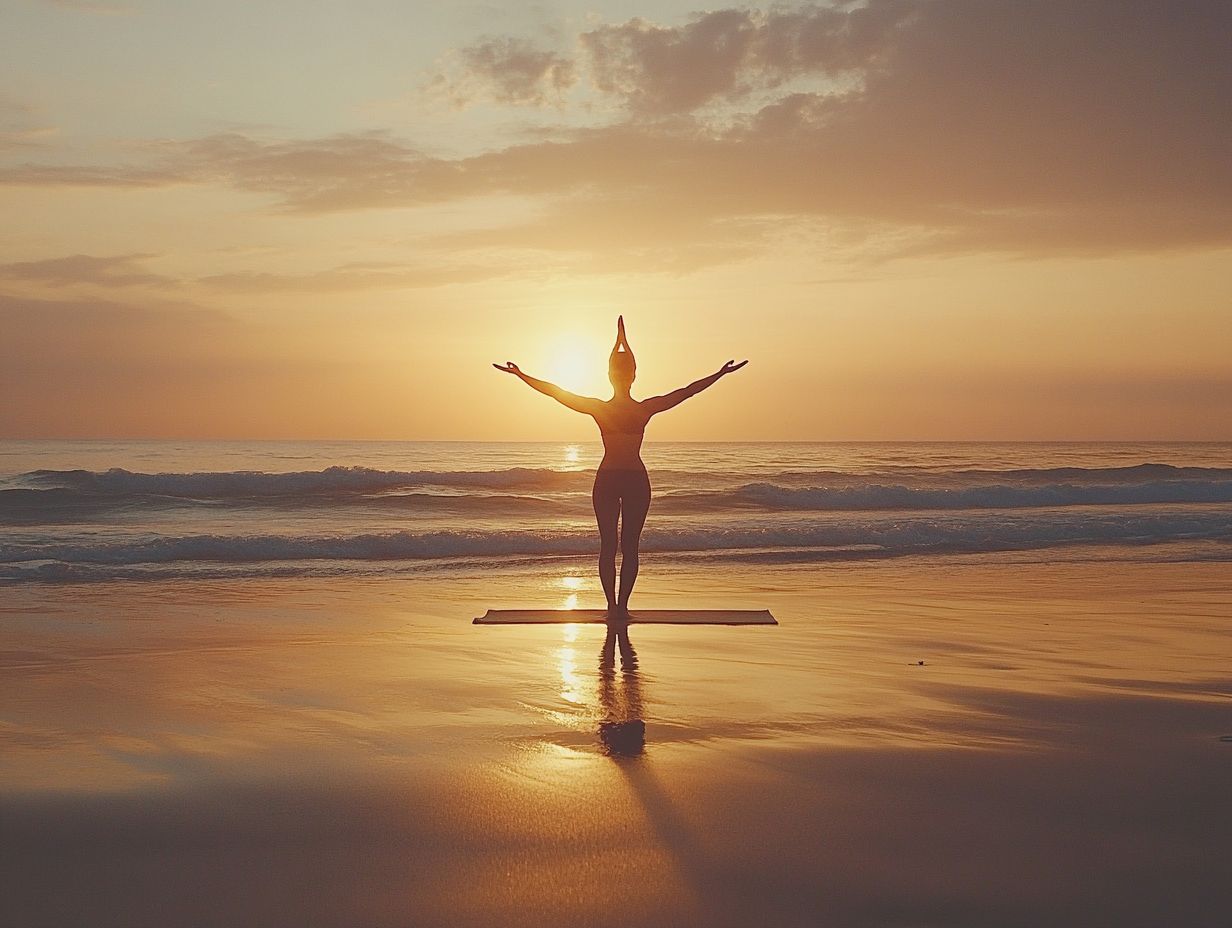
Common relaxation barriers include:
- Feeling guilty for taking time for yourself
- Difficulty turning off your mind
- Feeling like you don’t have enough time
How can I overcome feeling guilty for taking time to relax?
Remind yourself that taking time to relax is necessary for your mental and physical well-being. Set boundaries and communicate your needs to those around you.
What can I do to quiet my mind and relax through mindfulness?
Try deep breathing exercises, visualization techniques, or listening to calming music. Consider trying meditation or yoga to help quiet your mind.
How can I find time to relax and manage challenges when I have a busy schedule?
Start small and prioritize your relaxation time. Even just 10 minutes a day can make a difference. Consider waking up a few minutes earlier or scheduling relaxation breaks throughout your day.
What are some self-care activities and wellness practices that can help me relax?
Engage in activities that bring you joy and help you unwind, such as:
- Reading
- Taking a bath
- Going for a walk
- Spending time in nature
Find what works best for you and make it a regular part of your routine.
What can I do if I feel like I don’t have control over my relaxation or emotional well-being?
Take a step back and evaluate your priorities and responsibilities. Consider setting boundaries and saying no to things that don’t align with your need for relaxation. Seek support from friends, family, or a therapist if needed.


